Kommandantenstraße 57
10969 Berlin
Germany
With the construction of the new theater at Kommandantenstr. 57 in 1906, comedians and actors Anton and Donat (née David) Herrnfeld realized their ideas of their own theater. Donat wrote the plays on bourgeois themes of morality and honor in Jewish families. The success of the theater was also due to its family character. This existed in the interaction with the audience, but also in the operational structure. The wives sat at the box office, sisters and children also played on the stage, the mother cooked in the theater kitchen. The First World War was a blow for the theater of the brothers and their new plays were not so successful. In 1916 Donat Herrnfeld died. In 1921, Anton had sold the theater.
The Bühne in the backyard of Kommandantenstr. 57 has continued to be used steadily since then. In October 1935, the theater of the Kulturbund moved in. The Kulturbund Deutscher Juden was founded in 1933 as a reaction to the dismissal of Jewish artists from state cultural institutions. Monica Herrnfeld, Donat's daughter, also appeared as a Variétékünstlerin for the Kulturbund.
The history of the Kulturbünde is a history of self-assertion and resistance: Despite numerous impositions as well as flight and expulsion of the members, the Bühne was played. The November pogrom in 1938 was followed by a ban on the Kulturbundbühnen in Germany. Only the Berlin Kulturbund was able to continue organizing performances on the orders of the Reich Ministry of Propaganda, because it served the National Socialist authorities to monitor and conceal the crimes against the Jewish population.
In 1941, the Kulturbund was definitely banned. Some of its employees üsurvived in the underground or had fled before; so did Monica Herrnfeld. Others were arrested, many of them murdered. The theater was damaged during the war in 1944; the remains were blown up in 1953. Today there is a residential building here.
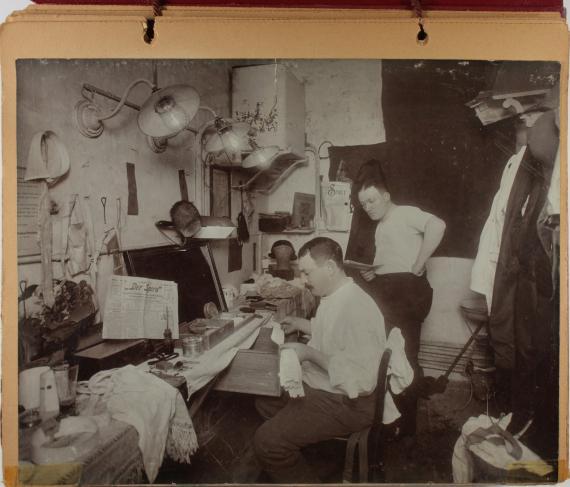
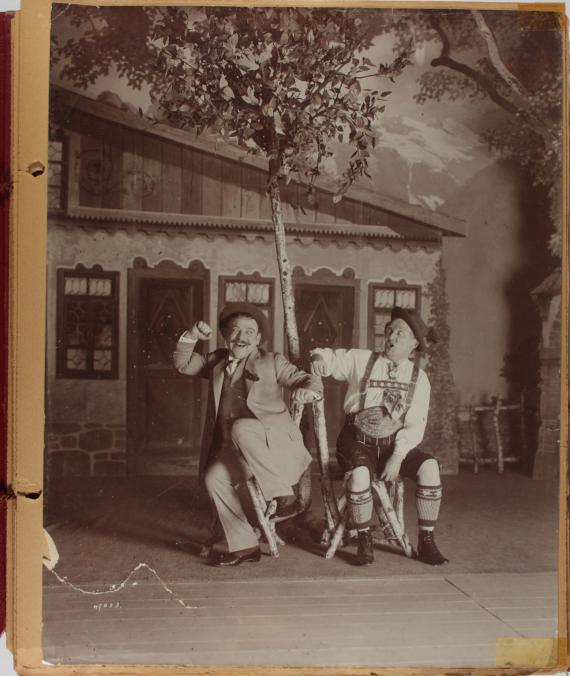
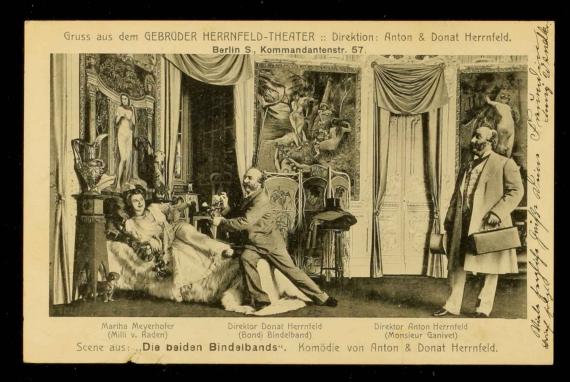
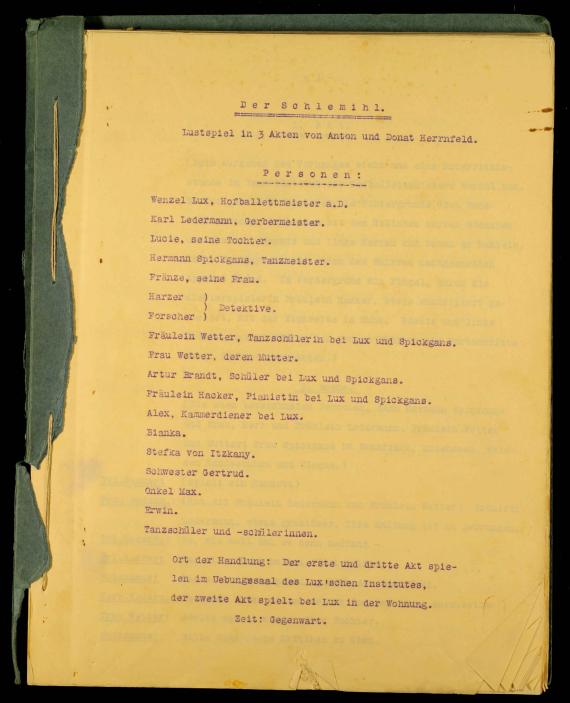

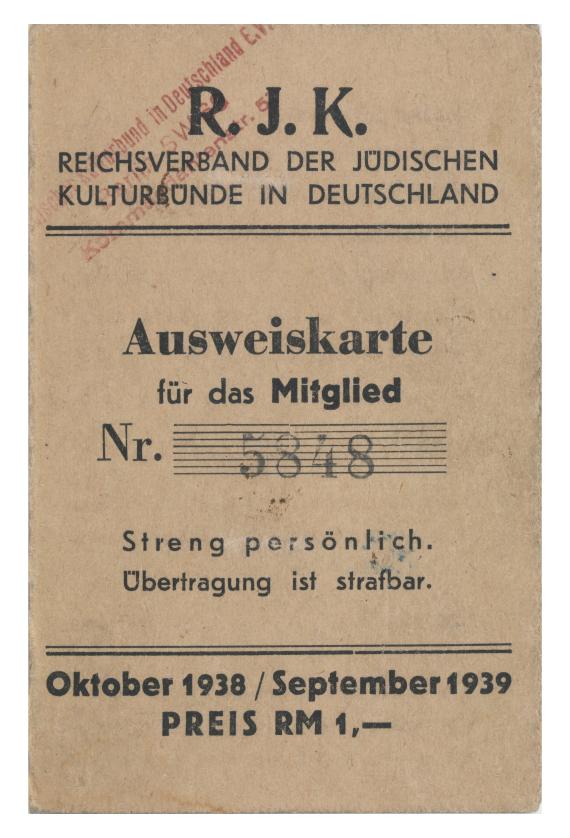
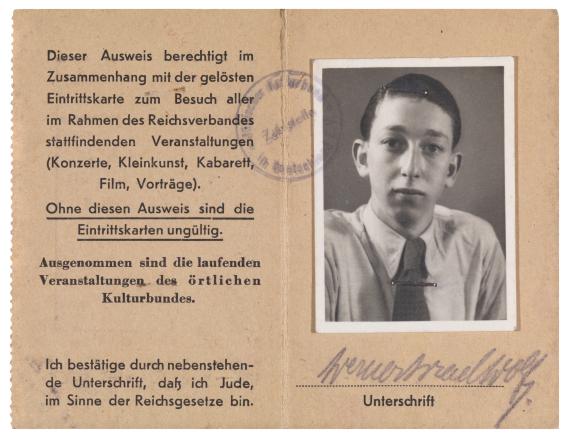
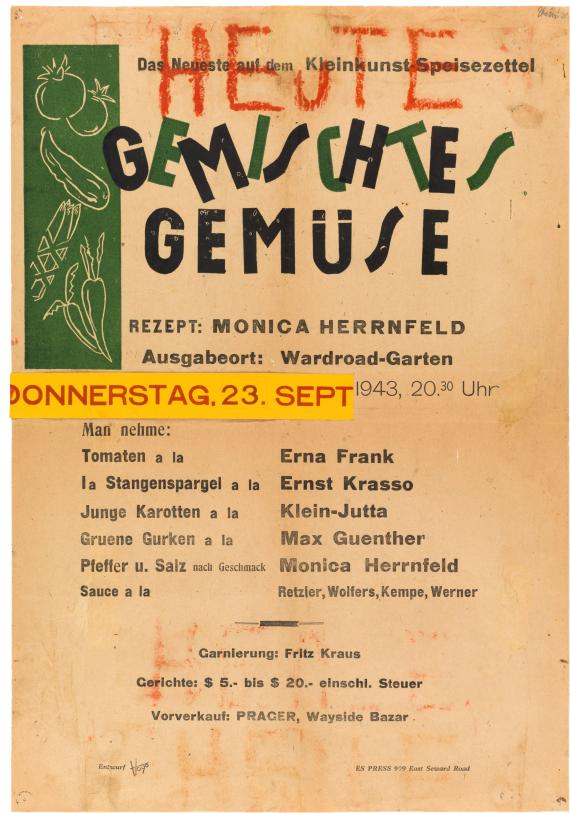
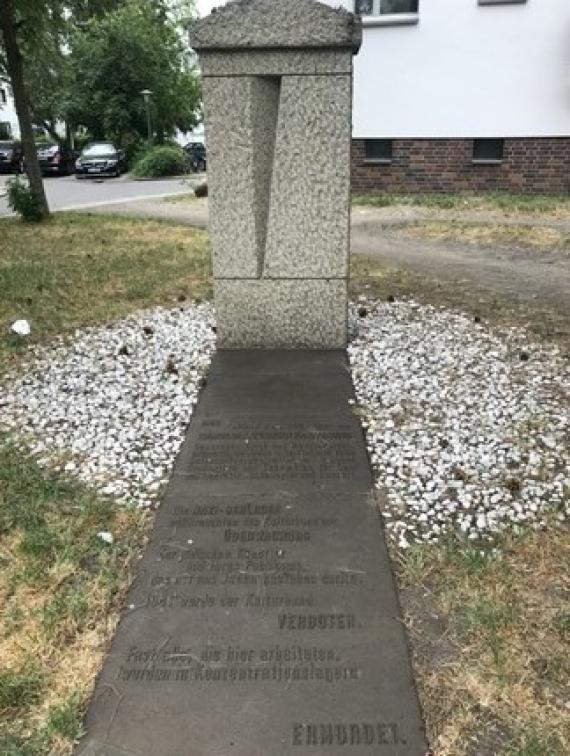
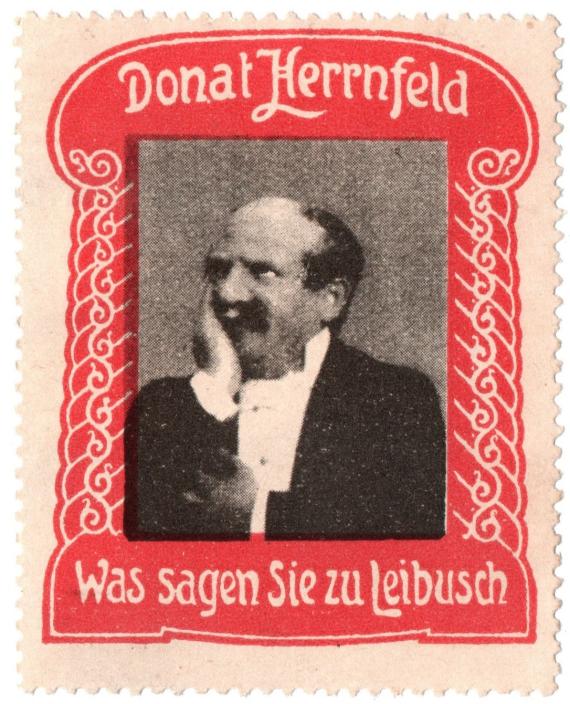
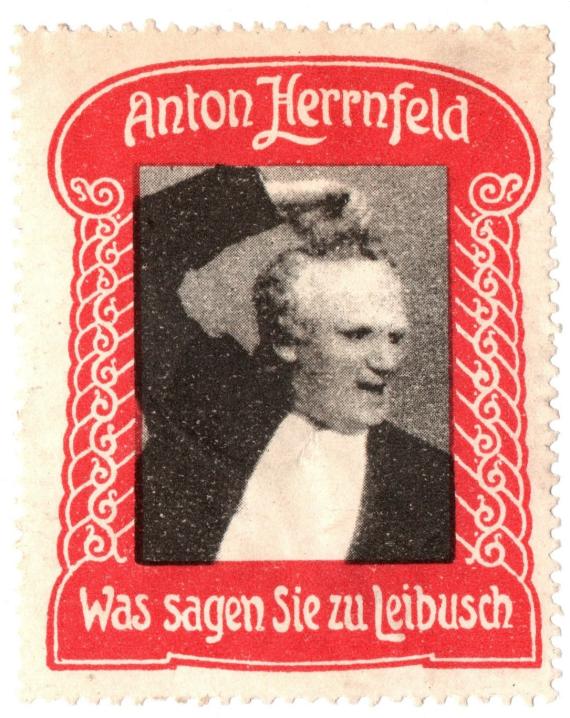
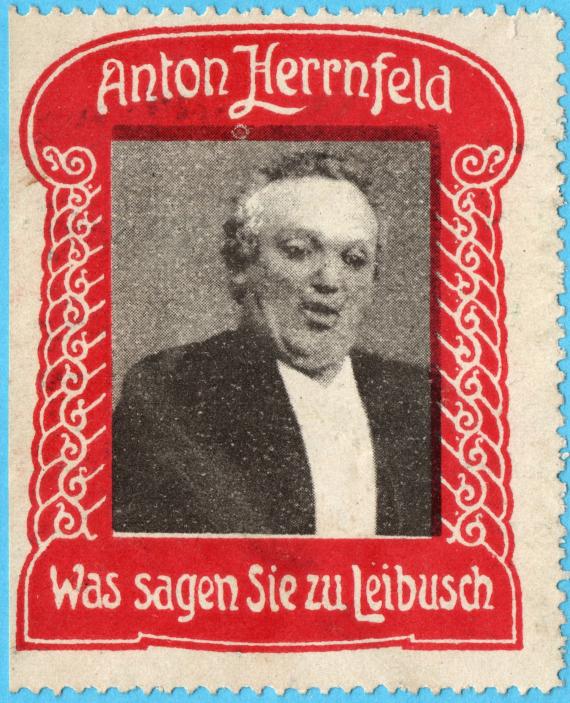
Add new comment